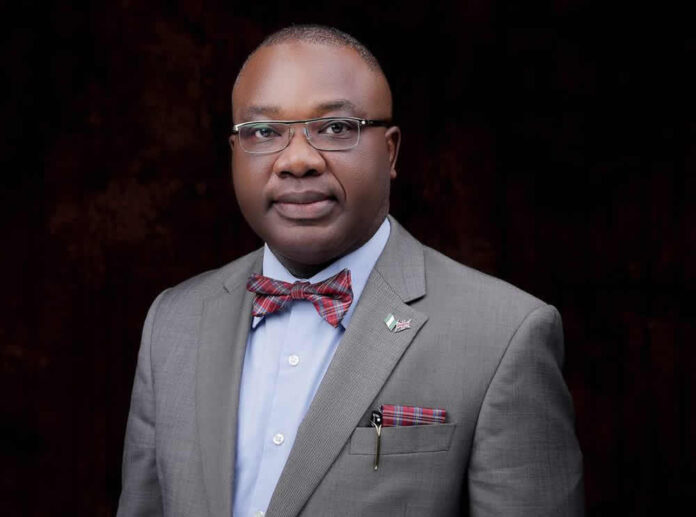By Anthony Ochela, Abuja
Executive Secretary of the National Human Rights Commission (NHRC), Dr. Tony Ojukwu, SAN, has challenged the National Assembly to expedite action on the passage of the legislation on the National Policy on Safety, Security, and Violence-Free Schools.
Dr. Ojukwu emphasized that this policy would provide a framework for ensuring that schools are safe and secure environments where children can learn and thrive without fear of violence or abuse.
A statement by Fatimah Agwai Mohammed, the Director Corporate Affairs and External Linkages of the Commission, said the NHRC Boss made the plea while speaking on the occasion of the International Day of Innocent Children Victims of Aggression.
The day which is commemorated every 4th of June is dedicated to acknowledge the pain suffered by children worldwide who are victims of physical, mental and emotional abuse.
According to the NHRC, in Nigeria, the day holds significant importance due to the country’s struggle with child abuse, exploitation and violence.
In the statement, Dr. Ojukwu called for collective action to ensure the safety and well-being of all children in Nigeria.
He also emphasized the need for stakeholders to work together to address the root causes of child abuse and exploitation, including poverty, insecurity, and lack of access to education.
In Dr. Ojukwu’s considered view, millions of Nigerian children face emotional, physical, sexual, and mental abuse, with many being displaced due to conflicts and made vulnerable to exploitation.
He emphatically noted that the North East region has been severely affected by the Boko Haram insurgency, leading to a significant increase in child rights violations.
He also pointed out that the sit at home policy in the South East has robbed many innocent children the rights to adequate education.
Dr. Ojukwu expressed concern over the plight of children in Internally Displaced Persons (IDP) camps, who are often forced to beg for survival, exposing them to further exploitation and abuse.
He highlighted the psychological impact of these experiences on children which affect their development and future prospects.
Despite these challenges, Dr. Ojukwu noted that Nigeria has made notable strides in protecting children’s rights.
He cited the School Feeding Programme, Safe School Initiative and the Child Protection Information Management System (CPIMS) as examples of efforts to provide a Safe and conducive learning environment for children as well as track and respond to child protection issues.
Dr. Ojukwu also called on the government to strengthen the implementation of the Child Rights Act and other relevant laws to ensure the safety and well-being of all children.
This, he said, includes providing adequate support to IDP camps, ensuring access to quality education and healthcare, and addressing the root causes of poverty and insecurity that lead to child exploitation.
He stressed the need for collective action by stakeholders to protect the rights and dignity of all children, ensuring their well-being and safety.
According to him, “working together, will create a society where children are valued, respected, and protected from all forms of violence and abuse”.
In this regard, he called for a concerted effort to address the problem of Almajiri children in the country, whose right to education and protection from abuse and exploitation have been put in jeopardy In the country.





